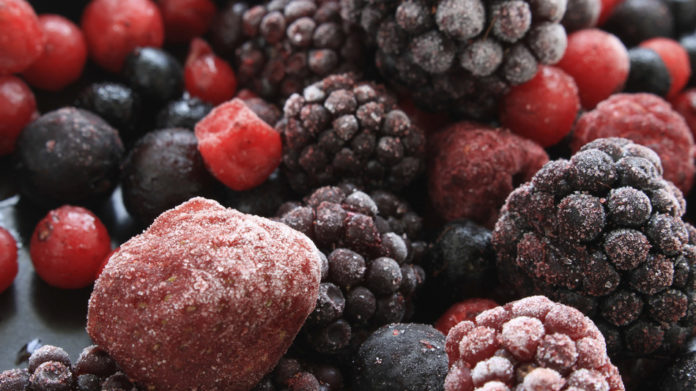Frozen berries recalled across Australia in hepatitis A scare

Australia is in the midst of a hepatitis A health scare, after five people contracted the virus after eating frozen berries.
Victorian company Patties Foods on Saturday recalled Nanna’s 1 kilogram mixed frozen berries with a best before date up to Nov. 22, 2016. The recall was extended on Sunday to Creative Gourmet mixed berries in the 300 grams and 500 grams variety, with best before dates up to Dec. 10, 2017 and Oct. 6, 2017, respectively.
The frozen berries, which are sourced from Chile and then packaged in China, have been found to be the only link between the patients. The products are sold in the two major Australian supermarkets, Coles and Woolworths, plus IGA supermarkets and some independent stores.
People have been asked to bin the product or return it to the store for a cash refund, while supermarkets have pulled the berries from the shelves. Patties Foods CEO Steven Chaur labelled the recall “precautionary” and “voluntary” in a statement reported by the ABC.
“We have decided that all our frozen Mixed Berries should be recalled until such time as we receive the results of further laboratory tests,” Chaur said. “The recall is an important step to ensure public safety and confidence.”
Hepatitis A is a viral disease which predominantly affects liver function. It is spread by oral contact with foods, drinks or other objects that have been contaminated by the fecal matter of a person infected with the virus. Poor hygiene can lead to a higher rate of infection.
The symptoms include fever, nausea, yellowing skin and eyes, stomach pain and dark urine. Anyone experiencing these symptoms has been urged to see a doctor.
So far, two people in New South Wales have been affected, as well as three in Victoria.
Dr. Vicky Sheppeard, from New South Wales Health’s Communicable Diseases Branch, said that more cases were expected due to the length of the incubation period (two to seven weeks) and the fact that it is a contagious disease.
“So far we’ve had two people that have confirmed hepatitis A, that in the weeks to months before they developed hepatitis A had consumed these berries and they’re coming from different parts of the state, so we’re concerned this might be a more widespread problem,” Sheppeard told the ABC.
“At this stage it’s an early stage of the investigation and we’re still gathering information about how much of the product is in NSW homes but potentially we will be seeing more cases in the coming weeks,” Sheppeard said.
Victoria’s chief health officer, Dr. Rosemary Lester, said that frozen berries had previously been linked to outbreaks of hepatitis A.
“Hepatitis A virus infection is uncommon and normally associated with travel to countries affected by endemic hepatitis A,” Lester told the ABC. “The only common link between the cases is consumption of this product. There is no overseas travel or common restaurant exposure.”
Have something to add to this story? Share it in the comments.
